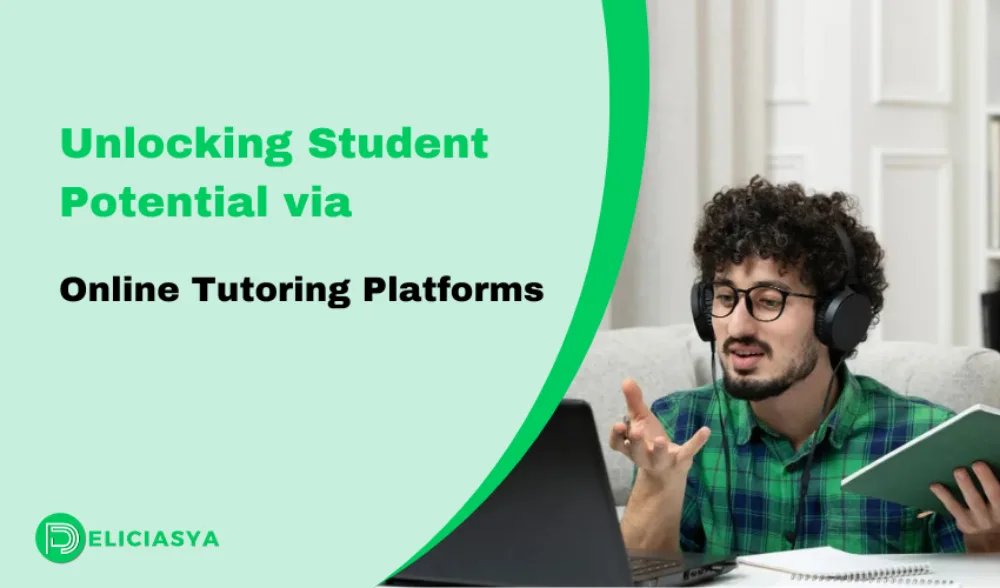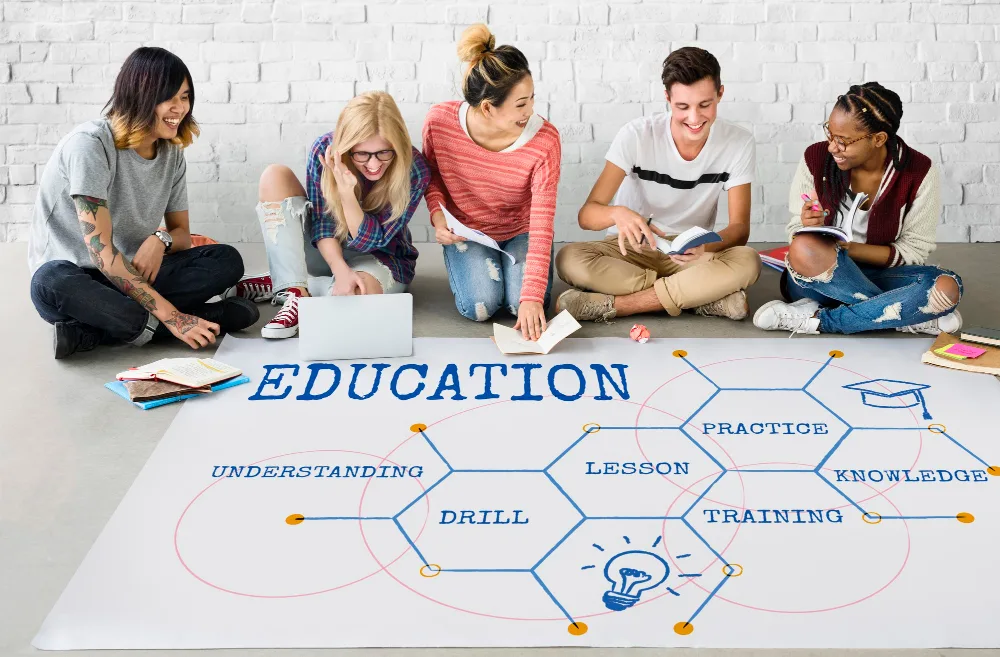Unlocking Student Potential via Online Tutoring Platforms

In today’s rapidly evolving educational environment, online tutoring platforms have emerged as a powerful tool for personalized and effective learning. These platforms offer far more than just convenience, they open doors to customized instruction, flexible scheduling, and access to a broad range of academic resources.
Whether a student needs help mastering complex concepts or simply benefits from additional reinforcement outside the traditional classroom, online tutoring can be the catalyst for real academic growth.
The true value of these platforms lies in their ability to meet students where they are, both academically and emotionally. Unlike traditional tutoring, which may be limited by geography, time, or availability, online tutoring breaks down these barriers and connects learners with expert support from the comfort of home. More importantly, it gives students a voice in how they learn, making education a more engaging, empowering experience. A best digital marketing agency can help online tutoring platforms reach more learners by building visibility, trust, and awareness through targeted digital campaigns.
The Role of Personalization in Online Tutoring

One of the greatest advantages of online tutoring platforms is the ability to tailor instruction to individual students. Instead of following a one-size-fits-all model, tutors can assess a student’s unique strengths, challenges, and learning preferences to craft sessions that truly resonate.
With data-driven insights, these platforms can track student performance over time, identifying patterns in learning behavior and adjusting strategies accordingly. This level of personalization allows tutors to zero in on problem areas, provide targeted feedback, and celebrate small wins that build confidence.
Furthermore, the flexibility of online sessions means that students can learn at their own pace. Whether that means spending extra time on tricky math problems or moving quickly through topics they’ve already mastered, the adaptability of online tutoring ensures every minute is used effectively.
Creating a Comfortable Learning Environment

For many students, the traditional classroom can be overwhelming, filled with distractions, peer pressure, or performance anxiety. Online tutoring offers a more relaxed, one-on-one environment where students feel safe to ask questions, make mistakes, and engage without fear of judgment.
This personalized space fosters trust and builds strong relationships between tutor and student, which is essential for effective learning. A tutor who understands a student’s interests and challenges can frame lessons in ways that make content more relatable and enjoyable.
Moreover, tutoring platforms often include features that enhance this safe learning environment, such as chat functions, screen sharing, and whiteboard tools. These technologies help simulate a face-to-face interaction while allowing for greater flexibility and comfort.
Enhancing Efficiency and Organization for Educators
While online tutoring is student-focused, its success also depends on how effectively tutors manage their content, schedules, and communication. Organization is key, especially when handling multiple students across various subjects.
That’s where tools like Notion classroom tools come into play. These digital resources enable educators to organize lesson plans, track student progress, set reminders, and store essential teaching materials, all in one centralized platform. This same principle of organization applies to other areas, like marketing where using thanksgiving email examples can help structure a successful campaign. Instead of juggling spreadsheets, emails, and multiple apps, tutors can streamline their workflow and focus more on delivering quality instruction.
With customizable templates and intuitive layouts, Notion makes it easy to create structured, repeatable systems for everything from session logs to student profiles. This kind of digital clarity helps tutors stay on top of their responsibilities and gives them more time to do what matters most: teach.
Encouraging Student Accountability and Growth
Effective tutoring isn’t just about explaining concepts, it’s about fostering growth, independence, and accountability. Online platforms offer a range of features that help track student effort and development, from automated quizzes and real-time feedback tools to goal-setting dashboards and progress reports.
These features empower students to monitor their own learning and reflect on their academic journey. When students can see their progress visually, they’re more likely to take initiative, set higher goals, and stay motivated.
Tutors can also assign follow-up tasks between sessions, encouraging practice and self-discipline. Integrating online assessments and feedback loops keeps students actively involved in their learning and reinforces concepts over time.
Additionally, using integrated platforms like Notion classroom tools helps tutors create consistent feedback systems, shared progress trackers, and assignment logs. Students benefit from having everything in one place, and tutors can easily adjust their strategies based on past performance and feedback.
Making Learning Accessible and Inclusive

One of the most transformative aspects of online tutoring is its potential to close learning gaps and make education more accessible to all. Students who struggle with traditional classroom models, due to learning differences, anxiety, or logistical challenges, often thrive in the flexibility of a virtual tutoring environment.
Accessibility features such as captions, screen readers, and language translation tools further support diverse learners. Tutors can adapt content to accommodate different learning needs, ensuring that every student has an equal opportunity to succeed.
Moreover, online tutoring expands educational access to students in remote areas who may not otherwise have access to subject specialists. Whether it’s SAT prep, advanced calculus, or essay writing, online platforms connect students with expert help that might be unavailable locally.
By leveraging these platforms thoughtfully, educators can make learning more inclusive, bridging academic gaps and helping students reach their full potential, no matter their background or starting point.
Leveraging Data and Insights for Continuous Improvement
Online tutoring platforms often come equipped with built-in analytics that provide valuable insights into student behavior, engagement, and progress. These tools help educators make informed decisions and adjust their teaching methods accordingly.
For example, tutors can review data to identify topics where students are consistently underperforming and reframe their instruction. Patterns in quiz scores, participation rates, or homework completion offer a clear picture of where to focus efforts.
This continuous feedback loop enhances the effectiveness of each session and promotes a more responsive, adaptive teaching style. Tutors aren’t just guessing what works, they’re guided by real-time data that reflects their students’ needs.
Platforms integrated with planning tools also allow educators to document these insights in a structured way. Keeping records of what strategies worked best, which explanations resonated, and what needs reinforcement helps create a more strategic and impactful learning experience over time.
Conclusion
Online tutoring platforms are transforming education by making high-quality, personalized learning available to more students than ever before. They empower learners to take control of their education, support educators with flexible tools, and offer a more inclusive and adaptable alternative to traditional classroom instruction.
By leveraging these platforms alongside powerful organizational systems and interactive technologies, we can unlock every student’s potential, and shape the future of learning, one session at a time.
